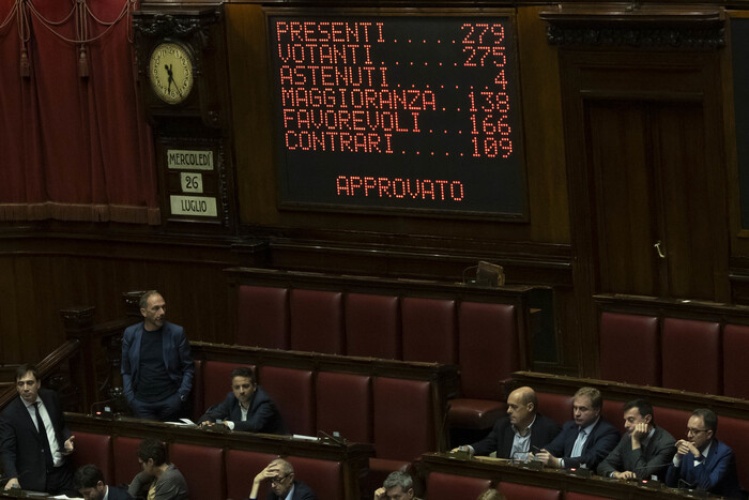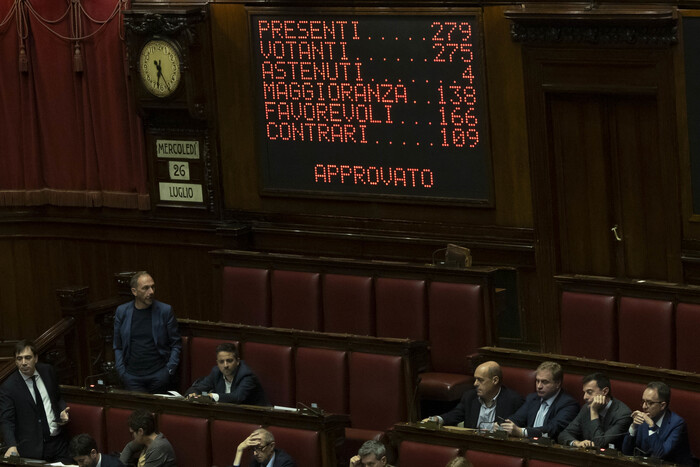The controversial measure, which now moves to the Senate where it requires the approval of that Upper House in order to become law, was presented by the centre-right majority, and would make gestation for others punishable by law even if committed abroad, but only for Italian citizens.
Surrogacy, which is illegal in Italy, has become a hot topic under the right-ring government of Prime Minister Giorgia Meloni, whose Brothers of Italy (FdI) party presented the bill that would prosecute Italians who resort to using surrogate mothers in countries like Spain and the US where it is legal, making it a “universal crime”.
Meloni has long been outspoken against surrogacy, which she has described as “a commodification of women’s bodies and of human life”, while the FdI has said that gestation for others is “worse than paedophilia”.
In March, the government drew criticism from the opposition and rights activists after it instructed city mayors to stop registering the children of same-sex couples using a procedure based on the transcription into Italian civic registers of the foreign birth certificates of children conceived via surrogacy or assisted fertility, which is only available to heterosexual couples in Italy, citing a ruling by the Court of Cassation, Italy’s highest court.
The crime of surrogacy in Italy is currently punishable with a prison sentence of over three years or a fine of between €600,000 and €1,000,000.
If the bill gets through, these penalties will apply to Italian citizens who engage in the practice, regardless of where it occurs.
Whether such a law would be possible to enforce is unclear, and legal experts have dismissed it as impractical.
Centre-left opposition Democratic Party (PD) Secretary Elly Schlein has said she is personally in favour of surrogacy.
ANSA











